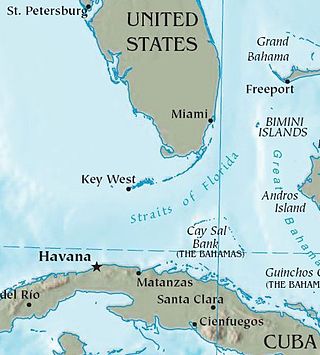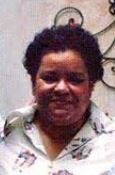Related Research Articles

The Cuban exodus is the mass emigration of Cubans from the island of Cuba after the Cuban Revolution of 1959. Throughout the exodus, millions of Cubans from diverse social positions within Cuban society emigrated within various emigration waves, due to political repression and disillusionment with life in Cuba.

Alicia Gaspar de Alba is an American scholar, cultural critic, novelist, and poet whose works include historical novels and scholarly studies on Chicana/o art, culture and sexuality.
Gustavo Pérez Firmat was born in Havana, Cuba, and raised in Miami, Florida. He attended Miami-Dade Community College, the University of Miami, and the University of Michigan, where he earned a Ph.D. in Comparative Literature. He taught at Duke University from 1979 to 1999 and at Columbia University until 2022. He is currently the David Feinson Professor Emeritus of Humanities at Columbia University.
Ricardo Pau-Llosa is a Cuban-American poet, art critic of Latin American art in the US and Europe, art collector, and author of short fiction.
Roberto G. Fernández is a Cuban American novelist and short story writer. He is noted for his grotesque satires of the Cuban American community, especially in his English-language novels, Raining Backwards and Holy Radishes! In 2001, he was named the Dorothy Lois Breen Hoffman Professor of Modern Languages and Linguistics at Florida State University.
Virgil Suárez is a poet and novelist. He is a professor of English at Florida State University. He is one of the leading writers in the Cuban American community, known for his novels including Latin Jazz and Going Under. He has also reviewed books for The Los Angeles Times, The Miami Herald, The Philadelphia Inquirer, and The Tallahassee Democrat.
Ana Menéndez is an American writer and journalist.
Evangelina Vigil-Piñón is a Chicana poet, children's book author, director, translator, and television personality.
Hispanic and Latino women in America have been involved in journalism for years, using their multilingual skills to reach across cultures and spread news throughout the 19th century until the common era. Hispanic presses provided information important to the Hispanic and Latin American communities and helped to foster and preserve the cultural values that remain today. These presses also "promoted education, provided special-interest columns, and often founded magazines, publishing houses, and bookstores to disseminate the ideas of local and external writers."
This is a Mexican American bibliography. This list consists of books, and journal articles, about Mexican Americans, Chicanos, and their history and culture. The list includes works of literature whose subject matter is significantly about Mexican Americans and the Chicano/a experience. This list does not include works by Mexican American writers which do not address the topic, such as science texts by Mexican American writers.
Roberto Valero was a Cuban poet, novelist, and educator.

Lourdes Casal was an important poet and activist for the Cuban community. She was internationally known for her contributions to psychology, writing, and Cuban politics. Born and raised in Cuba, she sought exile in New York because of Cuban communist rule. Casal received a master's degree in psychology in 1962 and later, a doctorate in 1975 from the New School for Social Research. She wrote the book El caso Padilla: literatura y revolucion en Cuba, which illustrated the failing relationship between writers and Cuban officials. A year later, she co-founded a journal named Nueva Generation which focused on creating dialogue on relationships between Cubans living abroad and on the island. Casal earned notoriety by attempting to reconcile Cuban exiles in the United States. She was instrumental in organizing a dialogue between Cuban immigrants and Fidel Castro, which led to the release of thousands of Cuban prisoners. She was the first Cuban-American to receive the Casa de las Américas Prize, which was awarded to her posthumously in 1981.

The emigration of Cubans, from the 1959 Cuban Revolution to October of 1962, has been dubbed the Golden exile and the first emigration wave in the greater Cuban exile. The exodus was referred to as the "Golden exile" because of the mainly upper and middle class character of the emigrants. After the success of the revolution various Cubans who had allied themselves or worked with the overthrown Batista regime fled the country. Later as the Fidel Castro government began nationalizing industries many Cuban professionals would flee the island. This period of the Cuban exile is also referred to as the Historical exile, mainly by those who emigrated during this period.

The Cuban success story, sometimes referred to as the myth of the golden exile, is the idea that Cuban exiles that came to the United States after the 1959 Cuban Revolution were mostly or exclusively political exiles who were white, largely conservative, and financially successful. The idea garnered traction starting in the 1960s via rags-to-riches stories of Cuban exiles in the US news media, and became widely promoted within the Cuban American community. The idea has been criticized as an inaccurate depiction of Cuban Americans that ignores historical fact.
A dialoguero is a label for a person who wants to open negotiations with the Cuban government. The label was coined as an epithet by hard-line anti-communist Cuban exiles.
In 1978 negotiations known as El Diálogo occurred between Cuban exile groups and the Cuban government that resulted in the release of political prisoners.
Arturo Rodríguez is a Cuban-born American visual artist. He is a painter, but also works in other mediums including NFTs. He is best known for his psychologically charged, figurative paintings. He lives in Miami, Florida.
References
- 1 2 Cortina 2008.
- ↑ Ortiz 2013.
- ↑ Lazo 2005.